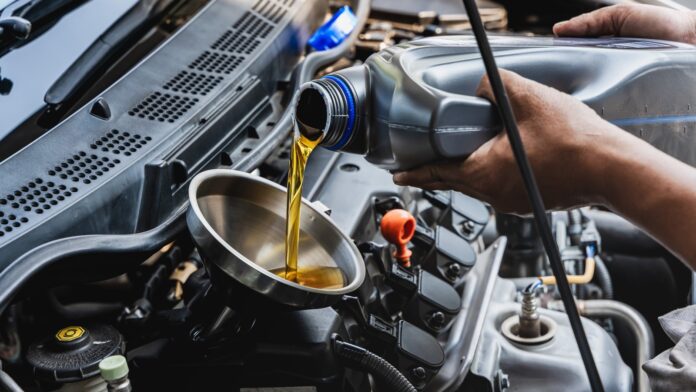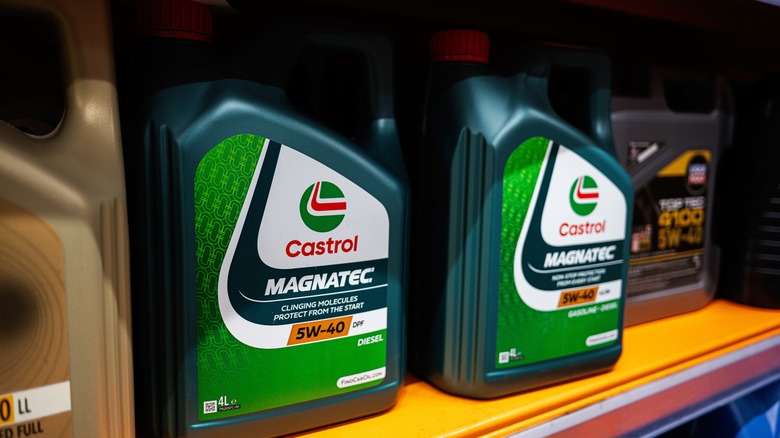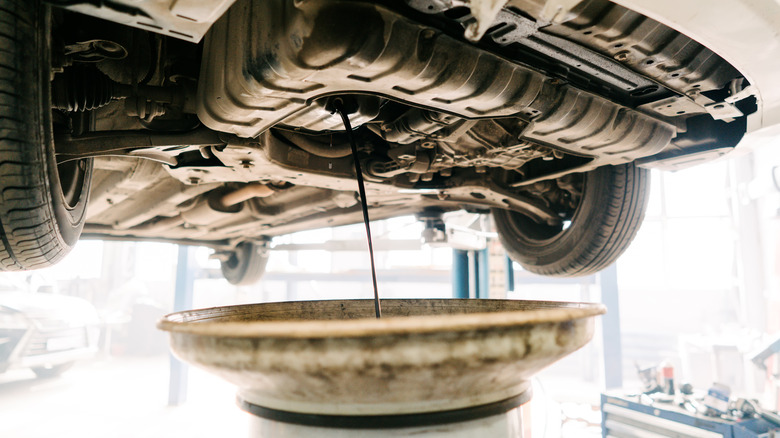If you own a diesel car, you’d probably know that getting its oil changed isn’t as quick or affordable as getting the oil changed on your friend’s gasoline car or the one you’ve owned before. It is a time-consuming affair that’s expensive and messy as well. This has a lot to do with how diesels operate, compared to gasoline.
Unlike gasoline engines, which use spark plugs to initiate combustion, diesel engines compress the air inside the cylinder hot enough to ignite the diesel fuel injected into it. The byproduct of this combustion is soot, a fine black powder that’s left after burning stuff, like the black powder coating the inside of your chimneys or the inside of your car’s exhaust tips. This soot makes its way past the piston cylinder rings, into the crankcase.
This soot is one of the primary reasons why diesel engine oils are different from gasoline engine oils. Diesel oil is a fluid engineered to operate in a completely different environment. It is a cocktail of additives, chief among them being dispersants. A dispersant keeps insoluble contaminants (like soot) in suspension and prevents them from clumping together to form an abrasive sludge. It also contains detergents that keep the insides of your engine clean. Detergents scrub away soot deposits from key areas like pistons and piston rings, ensuring your engine runs freely. There is a lot more to engine oil additives, and they help, but at a cost.
Diesel engine oil changes are expensive
Some of it is down to the additives being present in diesel engine oil. Diesel engine oils need additives, plus a complex formulation, which drives their price up. The higher cost of diesel engine oil does increase the prices for a diesel oil change, but that’s not the only factor.
A diesel engine requires more engine oil to operate optimally than a comparable gasoline engine. A Dodge Ram running a 6.4-liter Hemi V8 uses 7 quarts of engine oil. In comparison, the Dodge Ram running a 6.7-liter Cummins turbo diesel engine will need 10 to 12 quarts of engine oil. A diesel engine also uses an oil filter, which needs to be replaced every time you change your oil. This oil filter is larger than the one used in a comparable gasoline engine. Some heavy-duty trucks even have two oil filters. Replacing them adds to the cost and time.
These are some of the reasons why diesel engine oil changes take longer. A typical diesel engine oil change takes around 45 minutes to an hour. Not just that, diesel oil changes are a messy affair as well. A used diesel engine oil is thick and dirty, as it absorbs metal particles and combustion byproducts like soot. Overall, a diesel engine oil change done at a professional shop could cost around twice as much as a gasoline oil change. For example, a gasoline engine oil change will cost around $20 to $40, while a diesel engine oil change will cost around $50 to $70. So, spending extra bucks on high mileage engine oil does make a difference.
What happens if you don’t change the oil in a diesel engine?
The longer you delay an oil change, the more the engine oil loses its ability to absorb contaminants and oil can go bad just by sitting in your engine. Over time, diesel engine oil collects soot and contaminants from the combustion process, which makes it thick and sticky. Besides losing its lubricating properties, the oil breaks down, creating a byproduct called oil sludge. This sludge restricts oil flow by blocking oil galleries and pipes, which in turn can lead to power loss, reduced fuel economy due to resistance in moving parts, and eventually, catastrophic engine failure.
Besides knowing your engine oil change intervals, there are some indicators that tell you it’s time to change your oil. Increased engine noise is an easy indicator. A loud knocking or clattering sound could be due to the old engine oil being unable to lubricate engine parts properly. Reduced fuel efficiency is another indicator, as used engine oil has the engine working harder due to increased friction.
Check the engine oil dipstick and instead of a clean and dark amber color, the oil on the dipstick looks dirty and sludge-like; it’s time for an oil change. However, dark oil does not mean it needs to be replaced as soon as possible. That’s just one of four motor oil myths that just won’t go away. Also, do not ignore the engine oil pressure light. It is an indicator that your engine is not getting the lubrication it needs, due to low or degraded engine oil.





